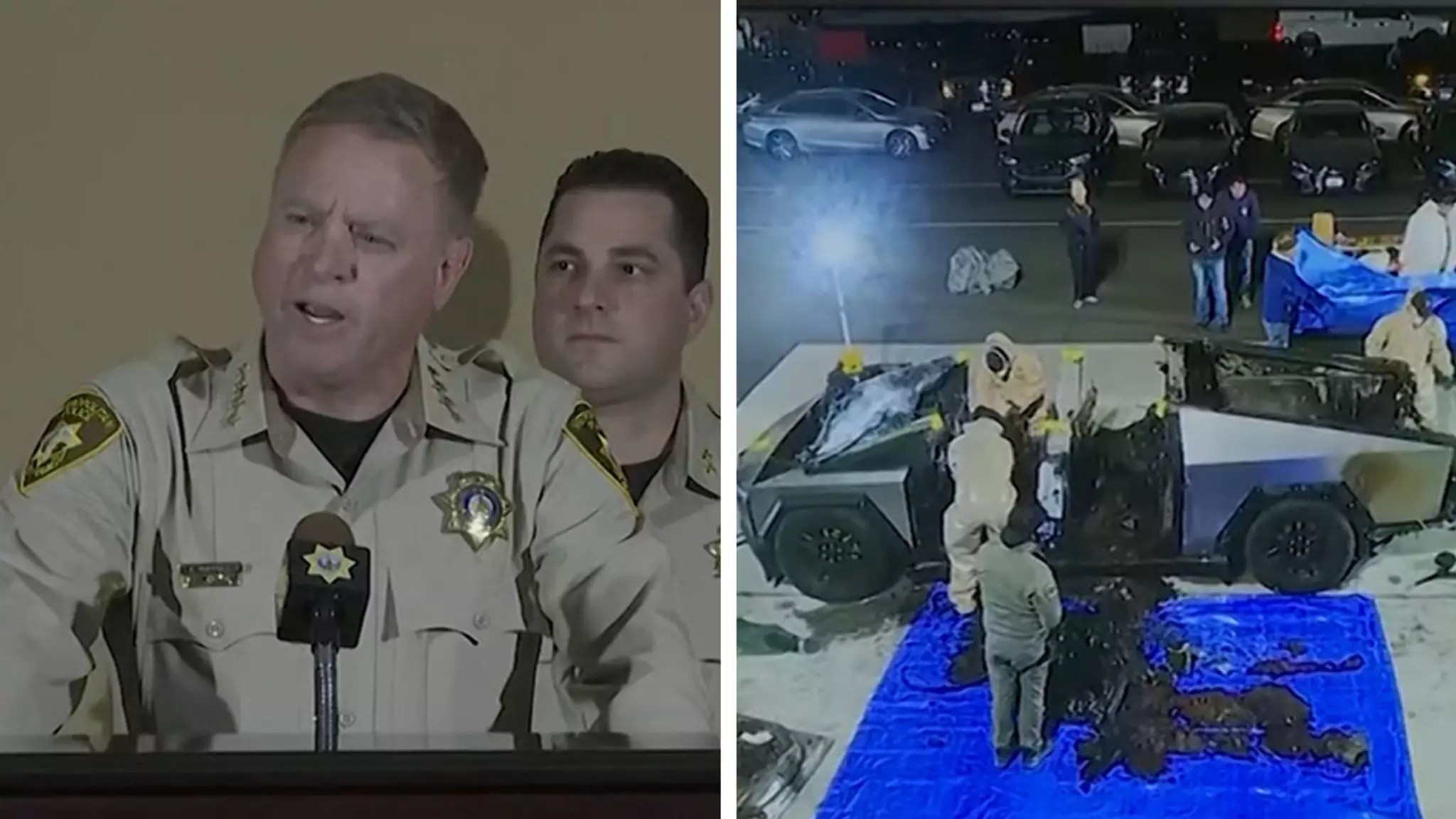On New Year’s Day, a shocking incident unfolded in front of the Trump International Hotel in Las Vegas. Matthew Alan Livelsberger, the man responsible for detonating a Tesla Cybertruck, did not only instigate a catastrophic explosion but also took his own life in a tragic culmination of unfathomable choices. This incident has prompted law enforcement and the public to engage in a deeper examination of the factors that led to such a violent act, as well as the implications it might carry for national security.
After the explosion, details slowly emerged, shedding light on Livelsberger’s precarious mental state. The Clark County Sheriff, Kevin McMahill, confirmed that Livelsberger fired a gunshot into himself just moments before the blast enveloped the vehicle. Investigators retrieved a Desert Eagle .50-caliber pistol from the scene, alongside another firearm and an alarming array of fireworks, which were regulated and easily accessible to the general public. This raises significant concerns regarding gun control and the laws governing the acquisition of firearms, specifically in relation to mental health issues.
Livelsberger was identified as a former Army Special Forces soldier, a detail that adds a troubling layer to the narrative. Veterans returning from service often face numerous challenges reintegrating into civilian life, including PTSD and other mental health problems. The presence of military identification and the legal purchase of firearms just days prior to the incident have ignited discussions around the support systems available for veterans and the possible warning signs that may have gone unnoticed in this case.
Authorities focused their investigation on the path Livelsberger took leading up to this event. The Cybertruck was rented through the Turo app, raising questions about the vetting processes for rental vehicles in potentially high-risk situations. After beginning its journey in Colorado, investigators mapped out the vehicle’s stops through New Mexico and Arizona before reaching Las Vegas. Through thorough analysis of surveillance footage, they reconstructed Livelsberger’s final moments and movements, offering a clearer picture of how a seemingly average rental journey transformed into a scene of horror.
While no direct link has been established between this incident and other recent acts of violence, including a separate terror attack in New Orleans also related to a rental vehicle, the authorities remain vigilant. The systemic issues encompassing mental health, gun control, and the vulnerabilities of rental services are once again thrust into the spotlight as communities grapple with the visceral impact of such tragedies.
This devastating incident is a stark reminder of America’s ongoing struggles with mental health and the violent consequences that can arise from inadequate support structures. As the investigation continues, it is imperative that lawmakers, mental health professionals, and community leaders collaborate to address the staggering statistics involving veterans and mental health crises. Only through collective action can we hope to avert such tragedies in the future, fostering a society that prioritizes mental health support, effective gun control, and the protection of all citizens.







Leave a Reply